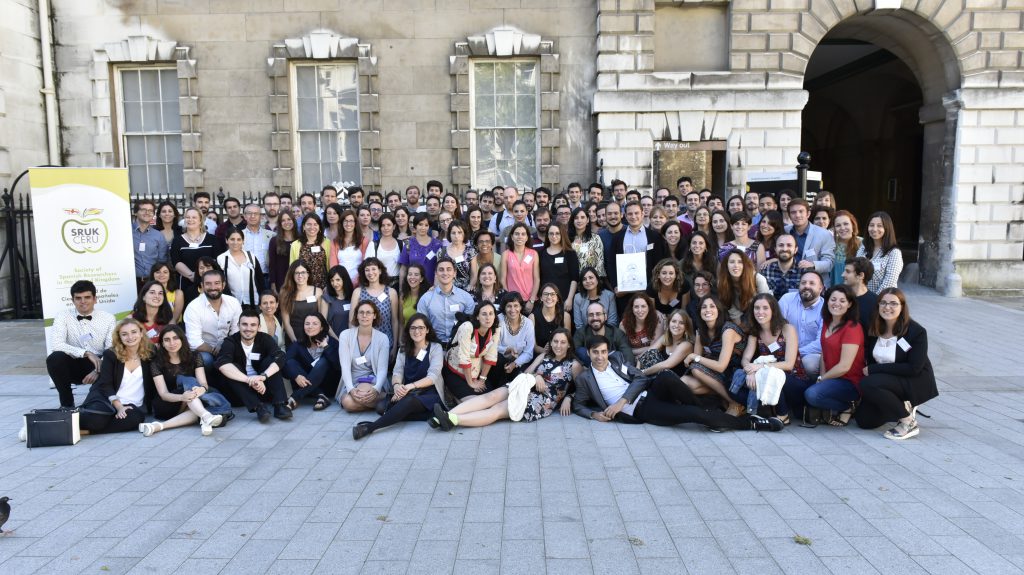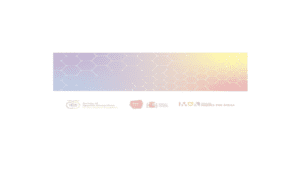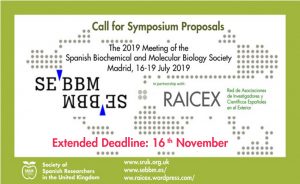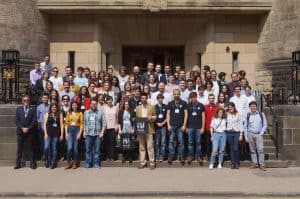The Society of Spanish Researchers in the UK keeps growing under Brexit uncertainty
- SRUK is currently formed by 700 members. Within the last year, the number of associates has increased by 100 new Spanish researchers developing their professional careers at renowned universities and companies in the UK.
- The symposium, held in London the 7-9th of July, celebrates the V anniversary of the Society. During the event, the researchers presented their latest discoveries and discussed the role of science in society; the importance of building a scientific culture; diversity and inclusion in science; and the challenges that researchers and scientific institutions face after Brexit.
- At the end of the Symposium, the researcher Estrella Luna Díez was elected president of the Society as part of a new board that will focus in strongly securing robust links with British institutions in order to fully consolidate the Society in the UK.

London, 9th July 2017. The Spanish researchers members of the non-profit organisation SRUK (Spanish Researchers in the United Kingdom), celebrated the fifth anniversary of the Society with the V International Symposium taking place in London from Friday 7th until Sunday 9th of July.
The Symposium started with the lecture of the first Spanish astronaut, Pedro Duque, who explained the current possibilities for the realization of experiments in microgravity. The neuroscientist Mara Dierssen (CRG), an expert on intellectual disabilities such as Down syndrome, remarked the value of basic research in order to “find treatments and improve diseases symptoms in the long term.”
The V Symposia of SRUK brought together Carmen Vela, the Spanish State Secretary for Research, Development and Innovation; Carlos Bastarreche Sagües, H.E. The Ambassador of Spain in the UK, and Raimundo Pérez-Hernández y Torra, Director of Ramón Areces Foundation, who highlighted the relevance of scientific advances and discoveries in today’s society and .
The researchers presented their latest results and discussed the role of science in society. In this regard, Jonathan Davis, a doctor from Montfort University and an expert on sustainable cities, has said: “austerity takes time and headspace” and “the permanent dispossession of a majority provokes outbursts of citizen fury”. In a debate with Jenny Nelson, PhD from Imperial College and Renewable Energy expert; Natasha Howard, PhD, London School of Hygiene and Tropical Medicine and expert on epidemics such as ebola; and Marta G. Rivera-Ferre, doctor of the University of Vic and expert in sustainable agriculture have highlighted the challenges facing humanity at the global level and how scientists can meet the challenges of the 21st century, how to find the balance between local action and globalization. On the other hand, Pere Estupinya, expert in scientific outreach and Katherine Mathieson, of the British Science Association, discussed how to transmit the scientific knowledge of researchers to get better communication with society in order to influence political and strategic decisions. The importance of diversity in Science was discussed by Prof Eulalia Pérez Sedeño (CSIC) who explained the posible solutions for tackling the gender bias, and finally, Claire McNulty (British Council) talked about the potential challenges and opportunities that British scientific system may face after the result of the EU referendum and explained the future recommendations for UK-EU relationships in Europe.
SRUK President, María Jiménez Sánchez, explained how this year SRUK has organised more than 50 activities, from symposia with world known leaders in their fields; scientific and outreach seminars, and professional workshops throughout the United Kingdom in order to bring Science to the public as well as to improve the visibility of researchers. Jiménez Sánchez expressed her satisfaction as “SRUK continues to grow and to consolidate the achievements from previous years”. In this fifth anniversary of the Society, SRUK has increased its as a reference in the uncertain context of Brexit.
During the Symposium, SRUK has renewed its board of directors with the incorporation of Estrella Luna Díez (President), Javier Escudero (Vice President), Nerea Alonso (Support Director) and María Barreira (Director of Online Department). Finally, the new president of SRUK, Estrella Luna Díez, manifested the Society´s aims for the future: “The next months, from SRUK we are going to focus strongly in securing robust links with British institutions in order to fully consolidate the Society in the UK. The Society has been able to achieve all of the set goals thanks to the work of 150 volunteers that work passionately to make a difference”. In addition, “we will take the challenge of Brexit as an opportunity” has concluded.





